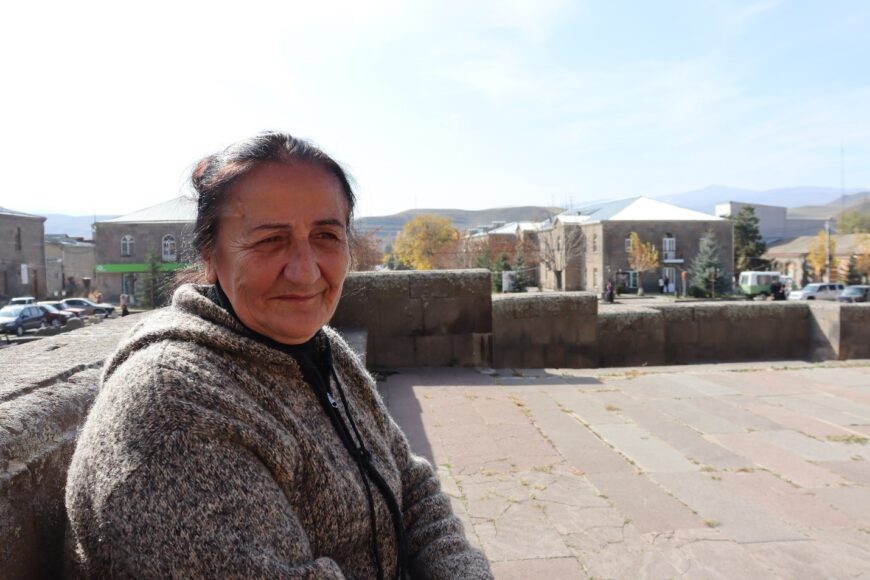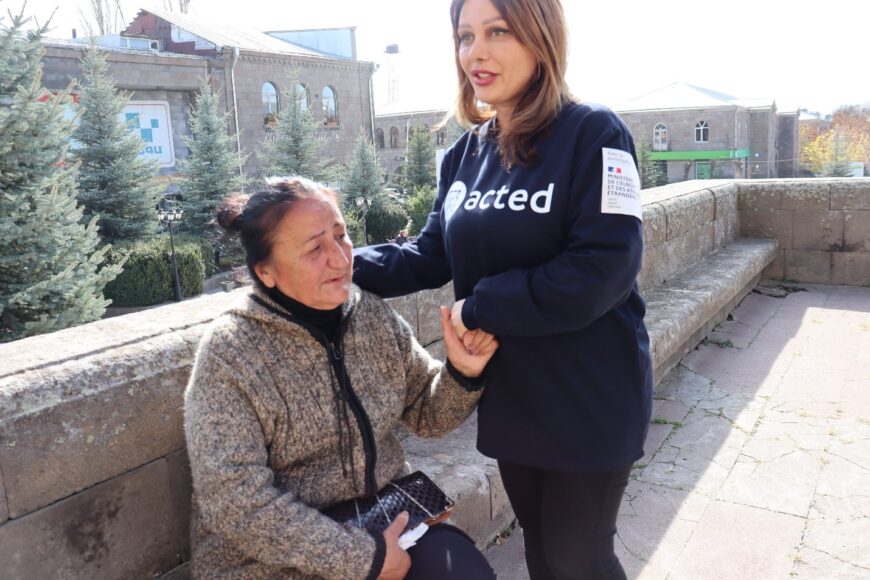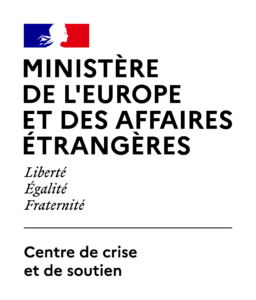Following the military operation in Nagorno-Karabakh in September, up to 100,000 residents of the region had to flee to Armenia via the Latchin corridor, the sole route between Nagorno-Karabakh and Armenia. Alina is one of them. She tells her story.
Alina, 72, was the last to person leave her apartment building in Stepanakert, Nagorno Karabakh. She had finally decided to flee the city she’d lived in all her life after military personnel appeared on her street. Taking only the clothes she wore and a few small possessions, she walked on foot to the public square where she stayed, waiting overnight for transportation across the border. Eventually, she was able to find a seat on a bus headed for Armenia via the Lachin Corridor.
Alina arrived alone in the small southern Armenian town of Sisian, population 11,000, on the 30th of September, just 11 days after the lighting military strike on Nagorno-Karabakh forced the displacement of over 100,000 of her fellow ethnic Armenians from the enclave. Connections to the region mean she has been one of the lucky ones who’ve managed to find shelter and comfort with a host family. Still, when Acted staff met her at Sisian Municipal Building in late October, stress and worry were etched on her face. Sisian is a relatively poor town – people don’t have much and there aren’t many employment opportunities. Situated off the main E117 route to Yerevan, the town doesn’t see many tourists either.

Leaving home and finding shelter in Armenia
In Stepanakert, Alina had a four-room apartment with a garage. She had been a teacher of physics and mathematics for over 40 years and rose to the rank of Deputy Principal. Her work was her life, her students were the children she never had. She loves to cook and knit. Proudly she points at the warm sweater she’s wearing – “I made this” she says with a smile.
She describes Stepanakert as a beautiful, clean city and its residents as “willing, kind, and supportive” She doesn’t want to go back but she misses her homeland. Before leaving Nagorno-Karabakh, she tried to visit the cemetery where her family members are buried and take some soil from their gravesides as a means of maintaining the connection. She couldn’t. The risks were to high.
Acted’s action: Bringing support to refugees in Armenia
With the generous support of French Ministry of Foreign Affairs’ Crisis and Support Centre (CDCS), Acted is helping to alleviate the most pressing basic needs of Nagorno-Karabakh refugees. In cooperation with a network of independent supermarkets, persons like Alina can purchase food, hygiene, and household goods from local markets, allowing them to direct their often meagre savings to other priorities such as housing and medicine. Alina describes how difficult it is to keep up with food prices:
In Stepanakert, by the end of the nine-month-long blockade, we were buying potatoes at 3,000 Armenian dram per kilogram [roughly 7.3 EUR]
When asked about the future, she hesitates. “Just some space to live,” she says, “that’s all I need”.

